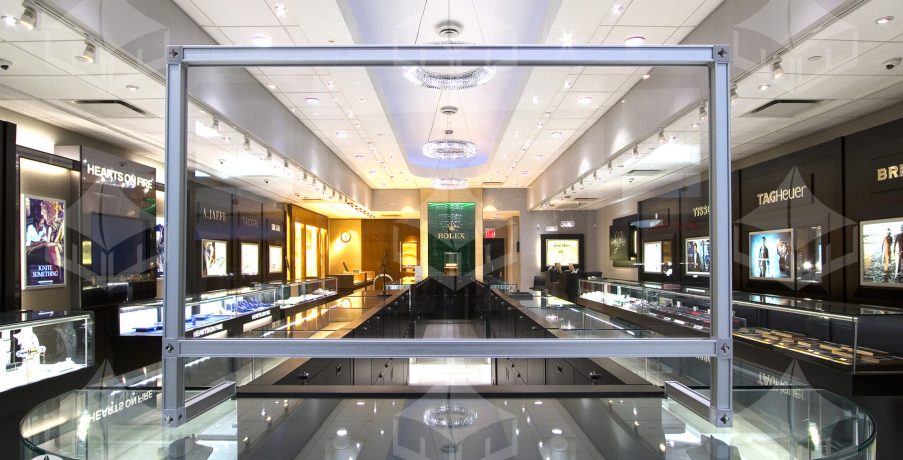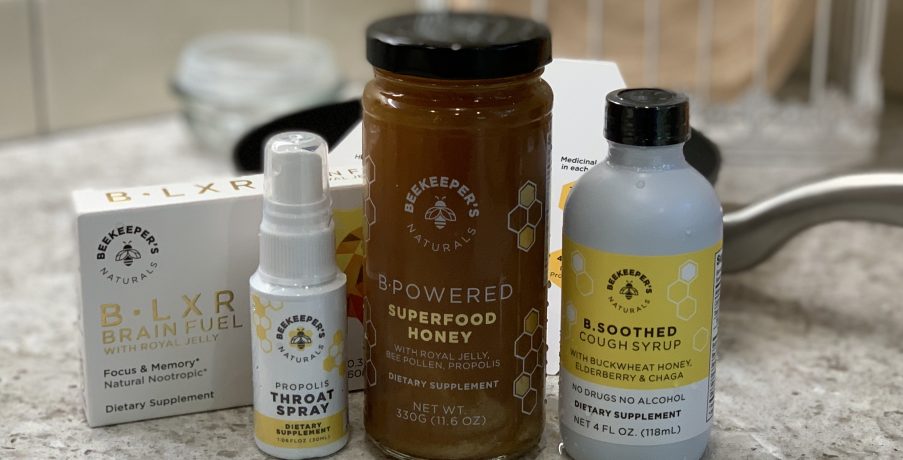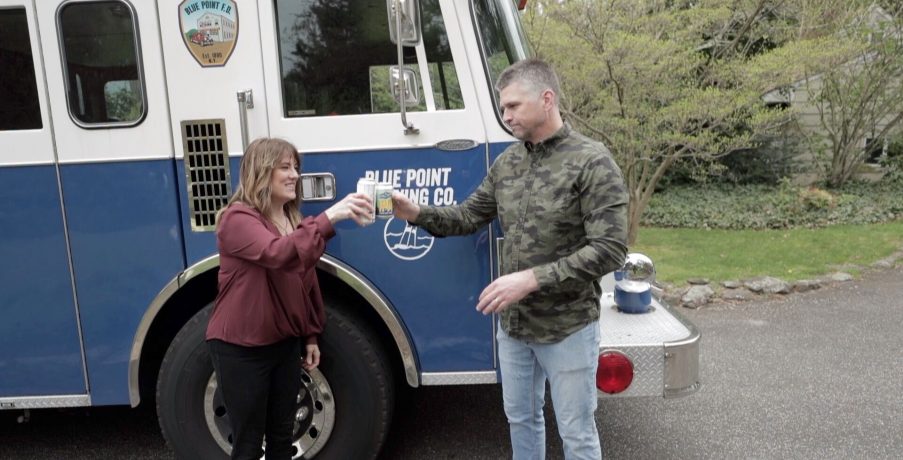
The Latest

Neil A. Carousso Joins Growing NewsNation Network

Neil A. Carousso Departing WCBS 880

Art Business Founded by Former Foster Child Speaks to the Human Experience

1010 WINS Small Business $10K Challenge: Small Business Owners Make their Pitch for $10,000

NYC’s Élan Flowers Evolves into Blooming Subscription and Corporate Services

Creating an Authentic Retail Experience Online

WCBS Business Breakfast: Growth in the Hybrid Workplace

Creating a Small Business Growth Strategy

Long Island City’s Growing Business District

SuperQuickQuestion Creates Short and Sweet Interactions with Pro Athletes and their Fans
-
Small Business Spotlight: Entrepreneurs Make Innovative Pivots And Solutions To Survive
Post Views: 936By Neil A. Carousso
NEW YORK (WCBS 880) — Employees may not recognize their offices when they return because owners are reimagining the workplace to adjust to the new reality they face against the coronavirus pandemic.
“There are a lot of people suddenly in need of a home office setup,” said Greg Hayes, co-founder and chief executive officer of Branch – a high-quality furniture line based in Manhattan.
Hayes tells Joe Connolly and Neil A. Carousso its home office furniture sales have grown exponentially since March.
“We’re going to have an entire line of the company that’s focused on building out a work from home environment,” he said on the WCBS Small Business Spotlight, sponsored by BNB Bank.
“By far the biggest thing is an ergonomic chair,” Hayes said of its customers’ home office needs. “We can barely keep up with demand for ergonomic chair sales.”
Experts say an ergonomic workstation can reduce or prevent discomfort in your back, neck and other stress areas. An ergonomic chair supports one’s body in a neutral position to allow for long periods sitting at a desk rather than being hunched over the computer.
The Branch CEO said desks and storage products, namely credenzas, and filing cabinets are also in increased demand amid the pandemic.
Hayes started in commercial real estate in Toronto, Canada before moving to New York City and launching Branch in 2018. The furniture store allows companies to trade-in its used Branch furniture for a store credit to update its workspace. Now, many businesses will be doing that to implement social distancing measures.
“Things like acrylic panels or fabric panels to separate employees or spacing furniture out with things like credenzas. That’s been popular across the board,” he said.
https://www.facebook.com/NeilACarousso/videos/1134343616902846/
An entrepreneur on Staten Island is manufacturing partitions for the newly designed workplace.
“It’s very modern-looking, it’ll fit into pretty much any atmosphere you bring it into and we’re able to customize them,” said Scott Weisberg of Everything Entertainment.
The events company owner made several pivots when weddings and parties he had on the calendar were canceled. Weisberg was inspired by an advertisement online and immediately started looking into how he could improve other partitions on the market.
“We make stuff out of acrylic, we make stuff out of plexiglass, and everything else all the time. I can make this in my shop,” he thought a few weeks ago even though he wasn’t enamored with the thin profit margins, but felt, “We could do something to help out.”
Weisberg’s new clients include a veterinary office, a real estate firm and beauty salons. He’s received interest from Manhattan building managers to install these so-called sneeze guards at reception desks.
Aside from the new service, he made adjacent moves to his existing hospitality business of 32 years to rent tents to existing local hospital clients in the Tri-State Area and state governments for COVID-19 testing sites.
Restaurateurs are calling Weisberg for long-term rentals of its modular tents to maximize their outdoor space to allow for social distancing when they are allowed to reopen for dine-in meals.
“It’s limitless on what we can provide,” he said, laughing that he doesn’t know how much modular tent space he owns. “Tens of thousands, hundreds of thousands square feet, I have no idea. It’s a lot.”
Weisberg and Hayes, like many entrepreneurs, are tapping into their creativity and seemingly endless stream of ideas to develop solutions to survive and make a positive impact during an unprecedented time in history that has significantly altered the way businesses operate. The COVID-19 pandemic is also accelerating the implementation of advanced technology in industries that have been largely undisrupted.
Listen to the WCBS Small Business Spotlight Podcast on the RADIO.COM app or on the media player above for more on what the future of industries look like post-coronavirus.
-
‘Back Off’: Ex-Bloomberg Chief Of Staff On Gov’t’s Role In Small Business Recovery
Post Views: 735By Neil A. Carousso
NEW YORK (WCBS 880) – As parts of the country, including New York, New Jersey and Connecticut begin to reopen in phases, business owners must change their operations to adjust to the new normal in the age of COVID-19.
“This isn’t just about revenues and profits for me, said Peter Madonia who owns the family-run Madonia Brothers Bakery in The Bronx’s Little Italy. “This is also about the fabric of a vibrant neighborhood.”
Madonia is the chairman of the Belmont District Management Association. He told Joe Connolly and Neil A. Carousso on the WCBS Small Business Spotlight, sponsored by BNB Bank, that some restaurants will not be able to survive as they already operate on small margins, but there is a path to recovery if they begin to reopen this month and owners are given the freedom to develop solutions.
“Every business should know what is expected of it in terms of customer interaction, occupancy capacity, masks or no masks,” Madonia explained. “And then, I think they have to back off a little bit – the government.”
He served as chief of staff to former New York City Mayor Michael Bloomberg and formerly worked as Chief Operating Officer of the Rockefeller Foundation. He tells WCBS 880 city and state governments need to provide “clarity” on health guidelines.
“None of them have made a payroll,” Madonia said of government officials. “I don’t want you telling me how to run my business. Tell me what the macro level rules are and I, as the entrepreneur, will figure out how to make my business work in that context or not.”
He emphasized he has “real confidence” in business owners pivoting in this unprecedented time.
https://twitter.com/NeilACarousso/status/1263166163460263937
Madonia is reimagining his operations and that of his business community on Arthur Avenue. A large majority of their customers – 80 percent – drive from 10-40 miles away to its establishments. It has never been a profitable option to close its lots in the evening, but the business improvement district (BID) leader is considering it to boost sales in this unprecedented time.
“The restaurants can increase capacity on the street and curb,” he said of this proposal the BID is considering.
“I think the City has to have some flexible understanding that not every neighborhood is the same, not every business district is the same, and let the business districts innovate a little bit on how theirs works best in what a new normal looks like,” said Madonia.
Listen to the WCBS Small Business Spotlight Podcast on the RADIO.COM app or above for more on the local economic recovery and small business survival.
-
Beekeeper’s Naturals Sees Sales Spike Of Immune-Boosting Products, Inks Whole Foods Deal
Post Views: 842By Neil A. Carousso
NEW YORK (WCBS 880) – Health and wellness start-up Beekeeper’s Naturals, Inc. is seeing increased demand since the COVID-19 outbreak as it finalized a deal with Whole Foods Market to sell its honey-based products at 422 U.S. locations.
Founder and Chief Executive Officer Carly Stein told WCBS 880’s Joe Connolly and Neil A. Carousso that she started to see an uptick in digital sales in March at the outset of the coronavirus pandemic.
“We saw online sales up over 600 percent year-over-year,” Stein said.
Beekeeper’s Naturals recently debuted a cough syrup, which sold so quickly that it had to limit purchasing to one bottle per customer until it could build inventory.
“There was just huge demand for natural medicine, immune driven products, particularly our propolis spray,” she said of the number one product on Amazon.
Propolis is a mixture of pollen and beeswax collected by honeybees. It has several healing qualities, including anti-viral, anti-inflammatory and antimicrobial plus it has been prescribed as a natural treatment for the common cold, canker sores and acne. Stein discovered it when she contracted tonsillitis while studying in Italy.
She is allergic to most antibiotics and began researching propolis when she returned to the University of Victoria in Canada in 2013 and became a beekeeper’s apprentice as she fought off sore throats and colds with the wonder bee mixture.
After working as an analyst at Goldman Sachs for two years, she left and pursued her passion by founding Beekeeper’s Naturals as a budding beekeeper herself, curating natural products. The company has an array of non-GMO, gluten free remedies and edible honey products intended to re-invent the medicine cabinet and people’s reliance on manufactured drugs.
“Every single one of our products has one ingredient from the hive whether that’s immune support in propolis or our raw honey,” Stein said, adding, “We work with all kinds of natural herbs and plant-based formulas.”
The surge in online demand, she believes, helped secure the deal with Whole Foods, which she had been negotiating for months.
“I think we’re making a global shift from reactive health purchasing to proactive health purchasing,” Stein said.
U.S. sales of cold and flu medicines accelerated 112 percent in the four-week period ending March 28, according to Nielsen research.
Over the last four years in entrepreneurship, she honed her sales pitch and made connections with other entrepreneurs who had experience working with brokerage companies that represent business owners in the retail application process.
While Beekeeper’s Naturals is in demand, Stein felt it was important to complete a detailed audit at the onset of the COVID-19 crisis to ensure her company’s balance sheet and her staff remain healthy.
“I found a lot of ways to create operational efficiencies,” she said of ensuring Beekeeper’s Naturals’ financial stability in step one in her process of nationwide retail expansion and a shift away from a mostly direct-to-consumer model.
In offering advice to close a deal of this magnitude amid the global pandemic, Stein emphasized value proposition, genuine marketing and product development that she found is crucial in inking a substantial deal, rather than a market test, with a major retailer such as Whole Foods.
“Adapt your pitch to modern times and be able to really have a conversation about how you’re supporting who your customer base is during this wild time in the world,” she said.
-
‘Shark Tank’ Star Daymond John Reveals Creative Business Solutions To Survive Coronavirus Pandemic
In Best Of, Entertainment, Featured, Guest, Interview, Latest, News Stories, Technology, The World, Top News, videosPost Views: 776By Neil A. Carousso
NEW YORK (WCBS 880) – Entrepreneur Daymond John, an investor on ABC’s “Shark Tank,” is encouraging his businesses to think outside the box to survive the economic crisis caused by the COVID-19 outbreak.
“Once you know what you have with your staff and what you have with your inventory, find out who else out there you can collaborate with,” John told Joe Connolly and Neil A. Carousso on the WCBS Small Business Spotlight focusing on small business survival, sponsored by BNB Bank.
The FUBU founder and bestselling author of “Power Shift: Transform Any Situation, Close Any Deal and Achieve any Outcome” pointed to Cowboy Fitness, based in Utah and Colorado, which he invested in on season 4 of “Shark Tank,” as an example of how business owners should pivot.
“They basically loaned (their members) the equipment, and then, now, he does video conferences, kind of like a Peloton,” John said, adding that Cowboy Fitness retained most of its members by creating a new service.
They have also secured partnerships with local stores that are shuttered and suffering from the lack of foot traffic. The retailers sell athletic apparel to its gym members at a 30 percent discount. In turn, Cowboy Fitness earns 5 percent on each sale. John calls this a “win-win” solution.
The 51-year-old businessman says technological advancements have been implemented much faster because of the coronavirus pandemic, forcing companies to develop new efficiencies and work-from-home policies. The fashion brand expert says traditional retail will not be able to bounce back without making vast changes to its business model.
“If I had Macy’s, one of the most famous and iconic retailers in the world, I would have cameras in there that are showing people’s style or various other things that people can feel like they can go in there because they’re an influencer,” John said, emphasizing, “They have to really make sure they become more of an events space than anything else.”
At The Shark Group, which he founded in 2009, John advises businesses on product awareness and developing genuine, innovative approaches to grow brands. One of the companies he works with is Bombas, a sock company founded by Dave Heath, whose core mission is to donate one pair of socks to the homeless community for every pair bought.
.@TheSharkDaymond tells @JoeConnollybiz and me he looks to invest in companies on @ABCSharkTank that “add value” to the communities they serve like @BOMBAS. #SharkTank #branding
More with Daymond on the @WCBS880 Small Business Spotlight Podcast: https://t.co/oYPQxdqcka pic.twitter.com/w2mCxr2vUj
— Neil A. Carousso (@NeilACarousso) May 13, 2020
“The millennials today, and people today, they want to say I didn’t give one time at the end of the year, I gave 400 times,” John explained. “How do you find ways to add more value to the person and barter in your deals?”
That’s what he is looking for on “Shark Tank:” Companies that are not only making money, but also demonstrate authenticity and passion for the communities they serve.
“I’m trying to find out if I like the entrepreneur personally, if I feel that I could communicate with them, I could add value to them, they’re a problem solver not a problem creator and whether this business works out or not, we’ll do another business together,” he said.
John took Connolly and Carousso behind the scenes of the reality TV show, telling WCBS 880 that the Sharks are competitive and the negotiating among the millionaires and billionaires is “real.”
“You don’t want to get embarrassed on national television by Mark Cuban or Barbara (Corcoran) beating you out in front of everybody,” John said.
He revealed “Shark Tank” pitches can last up to two hours, but viewers only see 8 minutes. Finalizing deals can last months after the taping as the Sharks vet businesses carefully before writing a check out of their own bank accounts.
When asked if he believes entrepreneurs are born or made, the Queens native said it’s “instinct,” elaborating that people are often discouraged from starting their own businesses because of difficulty or the dismissive attitude that it’s “never been done before.” But, John had already started a few businesses before he was 18 when he launched FUBU, now worth about $400 million, out of his home in Hollis.
While driving around Queens, his mother, Margot, encouraged him to follow his dreams. She said, as John recalled, “Every single thing around here started with one person that had one idea that took one action. Why can that not be you?”
“I started by selling hats on the corner in 1989 and I had sold $800 worth of hats in one hour,” he said of his first designed ski caps that he made by hand. “I just had to sow a straight line to really figure out how to make these hats.”
He closed that business three times between 1989 and 1992 because he ran out of money. But, his shirts became popular, in part, because he loaned them to local artists on the rise who wore FUBU T-shirts in music videos.
John’s mother took him to trade shows around the country where he earned hundreds of thousands of dollars in sales. But, he needed inventory. As an inexperienced young businessman, he was unable to secure a loan from a bank, so Margot took out a $100,000 loan on her house that John said was only worth $75,000.
“I sell all the furniture in my house, move in industrial sowing machines, sleep in sleeping bags next to the sowing machines,” he said of his hustle.
He also worked at Red Lobster at night to make money to invest into his dream clothing business that he operated during the day.
John said he bought an advertisement in The New York Times or New York Daily News seeking investors to provide the funding he needed to fill orders and move FUBU out of his home in Hollis.
“Thirty-three people called. 30 of them were loan sharks or Kevin O’Leary-type of people,” his fellow “Shark Tank” star quipped. “One of them was Samsung’s textile division.”
They signed a deal for Samsung to take over manufacturing, reducing costs, and John learned a lesson in business he would later impart on others while living the American Dream.
-
Blue Point Rewards Workers With Raises, Toasts Local Heroes As Brand Pivots To Survive
Post Views: 826By Neil A. Carousso
NEW YORK (WCBS 880) – Blue Point Brewing Company is raising a glass in honor of its essential workers and those on the frontlines of the coronavirus pandemic while it adjusts to new operations it has been thrust into amid the shutdown of hospitality businesses.
Mark Burford, founder of the Patchogue-based craft beer brand, says his company has always been about spreading cheer.
“Even when things are as tough as they are, it’s our job, internally, to bring fun and joy and we try not to lose track of that at any time,” he said on the WCBS Small Business Spotlight focusing on small business survival, sponsored by BNB Bank.
Like most companies, Blue Point is facing the reality of a changed workforce. Employees who can perform their job functions remotely are working from home. Meanwhile, social distancing has been implemented among essential workers at its brick and mortar location for those who manufacture beer. They are so busy that employees are working around the clock. Burford is staggering shifts to sanitize all equipment at its brewery.
“Everybody was given a 10 percent pay raise,” he said of his essential workers. “There’s just nothing really more important than the safety and health of the employees, so take care of people first, and then, as we slowly come back from this, we’ll see if we really ever get to where we were where everybody had to come in every day in the building.”
Blue Point is also giving away beer and food to deserving members of communities on Long Island every week as part of its social media campaign “Toast Your Hero.” They arrive to the winners’ homes or workplaces in style in a blue-pained fire truck they purchased last summer from the Blue Point Fire Department.
“It just puts a smile on everybody’s face,” Burford said, adding, “It’s just a fun thing and we all need a little bit of that levity right now.”
Customers can also buy a meal for just $8 to be delivered without contact to frontline workers from the Blue Point restaurant at its brewery in Patchogue.
He also donated beer kegs to local distilleries.
“There’s one in Patchogue called Better Man Distillery and they changed that beer that would have gone out of code and gone bad and they turned it into hand sanitizer,” Burford said.
His philosophy is simple: Do good for others and good fortunate will return.
“There’s a lot of different ways and avenues that you can help positively impact the situation,” said the brewmaster.
Blue Point’s shipping time to national suppliers has slowed slightly and orders have slumped due to restaurant closures, but local business has been “tremendous” as it serves Long Island heroes of the COVID-19 crisis.
New York State relaxed its alcohol laws to permit delivery, which has opened the door to a new business model.
“It makes you think about what other long-standing rules and regulations that typically would not be able to be changed, but in this scenario could be changed, Burford said, offering, “For other business people out there, even if there’s stuff that you never thought of that might be eliminated or changed, now’s the time to look for that.”
Hear how Blue Point is developing long-term solutions to a changed world plus Burford’s advice for other hospitality business owners on the WCBS Small Business Spotlight Podcast above and on the RADIO.COM app.
Social Feeds

VIDEO: Told the airline to book us on the next flight out (SPONTANEOUS TRIP!)

VIDEO: The Taylor Swift Effect | WCBS Business Breakfast

VIDEO: Future of NYC | WCBS Business Breakfast

VIDEO: Reasons for New Yorkers to be Optimistic | WCBS Business Breakfast

VIDEO: NYC's AI Chatbot | WCBS Business Breakfast







